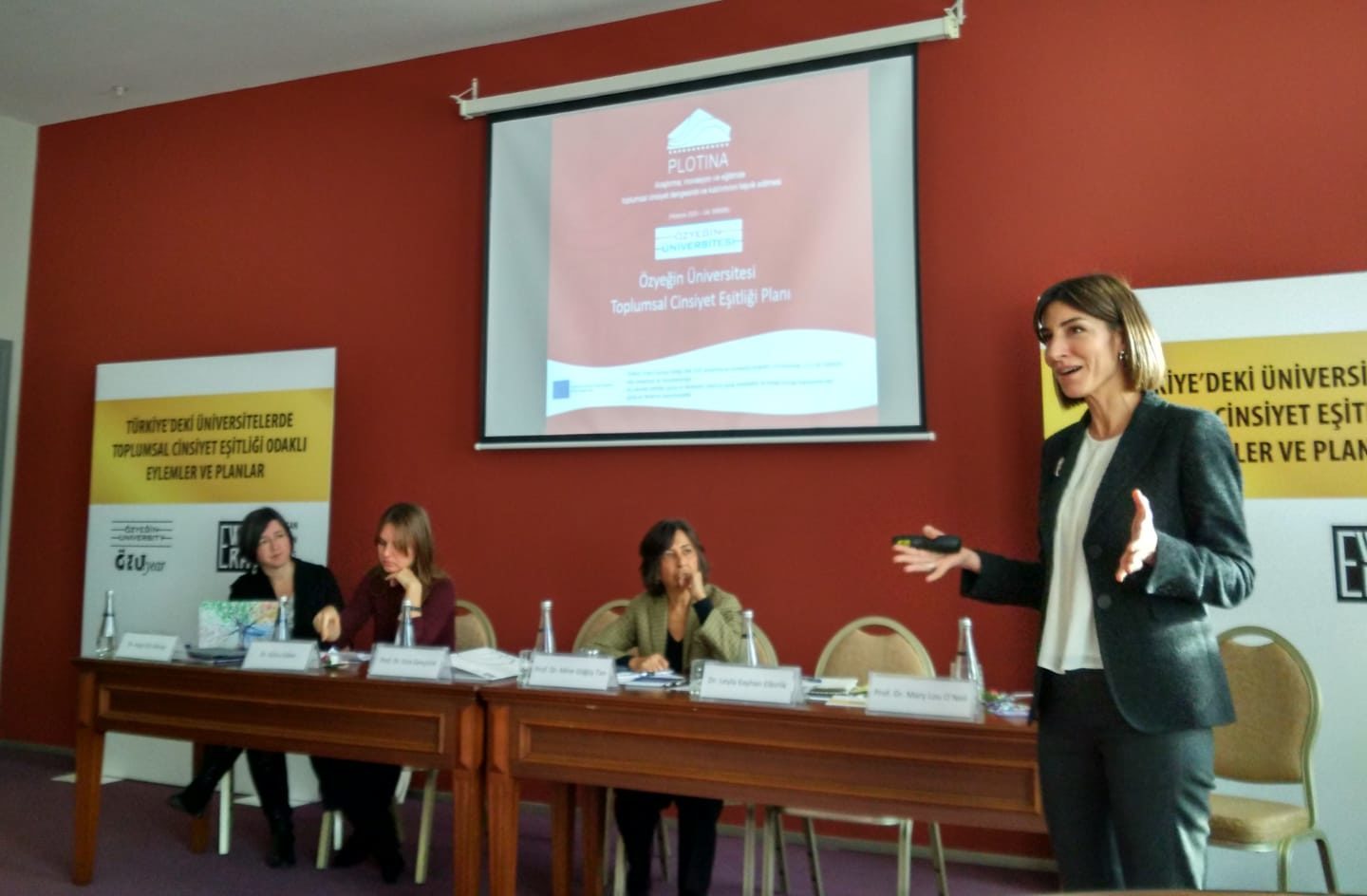Gender mainstreaming in Turkish universities
Özyeğin University organised a panel entitled “Gender Mainstreaming Actions and Plans of Universities in Turkey” on 13 December 2018, which was held jointly with the Turkey office of European Women Rectors Association (EWORA) following their meeting on the same day. The panel was chaired by Özyeğin University Rector Esra Gençtürk and included invited speakers from four universities in Turkey – Prof. Mine Göğüş Tan (İstanbul Technical University), Prof. Mary Lou O’Neil (Kadir Has University), Dr. Leyla Kayhan Elbirlik (Özyeğin University), and Dr. Ayşe Gül Altınay and Dr. Gülru Göker (Sabancı University). The event attracted a range of audience from Özyeğin University, including deans, teaching staff, administrative staff and students interested broadly in gender issues.

The speakers talked about past and ongoing gender mainstreaming projects and practices at their own universities and provided insight into differences in initiation, implementation, and impact of such projects and practices at various universities. Dr. Kayhan Elbirlik’s presentation focused on the PLOTINA project at Özyeğin University. Having briefly introduced the project, Dr. Kayhan Elbirlik explained in detail the overall objectives as well as the five key areas of the Gender Equality Plan and presented examples of specific actions each key area entails. She also listed a number of actions already completed and in progress, such as organising gender equality training for academic administrators, administrative staff and managers; starting a new undergraduate course on feminist theory; and hiring a gender expert. Among other presentations, Prof. Göğüş Tan’s gave an overview of several EU-funded gender projects over the past ten years that İstanbul Technical University has undertaken; Prof. O’Neil’s introduced the specific gender equality actions (e.g. increasing paternity leave to ten days) taken in relation to the SAGE project at Kadir Has University; and Drs. Altınay and Göker’s demonstrated a bottom-up model, distinguishing the Sabancı University case from the others, which included establishing gender forums and a Gender Studies programme first and developing a gender equality action plan later.
At the end of the panel two specific suggestions were made: first, creating a mentoring scheme by the six Turkish universities so far undertaken EU gender projects in order to provide support for a selection of less experienced universities in Turkey in their EU gender project applications; and second, creating a pool of educators among three or four universities experienced in gender teaching to develop gender equality training programmes, specifically tailored for needs of university staff.


Comments are closed.